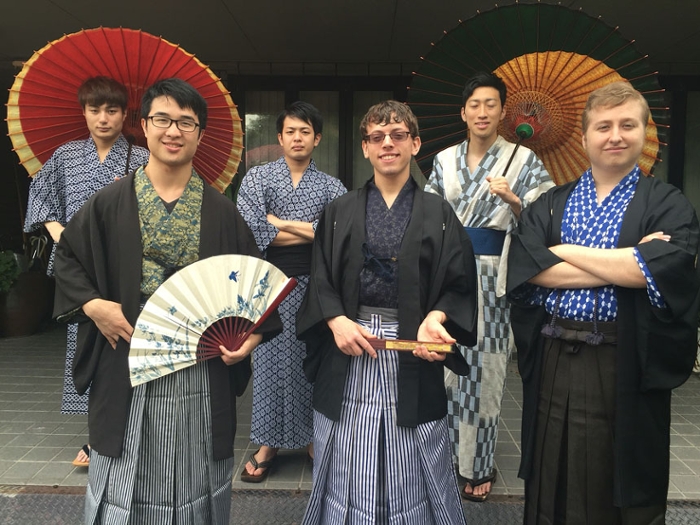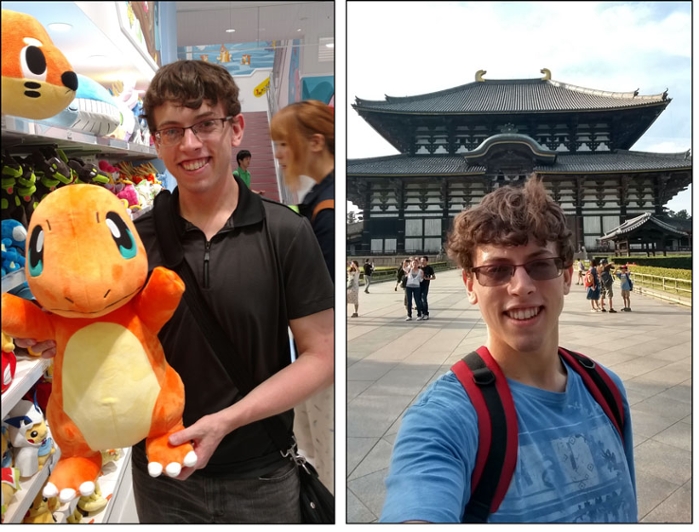‘I was even starting to think in Japanese’

Nicholas Boldt ’18 (at center, front row) and his housemates in Osaka dress up in Japanese traditional clothing. They also tried out traditional instruments -- the koto (stringed) and taiko (drum).
The CET Summer in Japan program literally immerses students in the local culture of Osaka. Participants take intensive language classes, live with a local roommate, and uphold a full-time pledge to speak only Japanese.
This approach certainly paid off for Nicholas Boldt ’18, a biomedical engineering student, who participated in the program during the summer of 2016.
“I was placed in a situation in which I had to speak Japanese to live day to day,” he said. “The classes were particularly interesting, but not easy; with a handful of other classmates we did a rigorous program that had us doing interviews at famous places, going to an elementary school, and giving several presentations - all in Japanese of course.”
““By the time I left the program I was even starting to think in Japanese.”
And he had gained course credits that he could transfer here for his minor in Japanese.
This was Boldt’s first trip abroad, allowing him to experience a different culture firsthand and “live a life that was completely different from anything I’d experienced here in America.”
“Being in a situation where I had to watch my living expenses, while living with others who had their own habits, helped me to become more responsible,” Boldt said. “Additionally, my interviews and presentations in Japanese, along with living without relying on my friends and family, helped me gain a self-confidence and self-reliance that has changed my life for the better.”
Boldt received scholarships from both the Gilman and Freeman Asia programs, totaling $8,000, “which almost covered my program’s cost, so I only needed to pay for airfare and living expenses.” Applying for these scholarships and the CET program entailed writing lengthy essays, he added, “however, I made sure to meet with my study abroad advisor often and well ahead of all my deadlines, so I had plenty of time to draft strong applications.”
His advice to other students in biomedical engineering and related majors would be to plan on studying abroad sometime before their junior year, if possible, in order to have time during the subsequent semesters and summer for internships and research. “However, for the purposes of learning and practicing my Japanese language abilities,” Boldt said, “it was definitely beneficial to study abroad after having a couple years of formal classes at the University of Rochester, so that I could focus on the advanced practical applications of the language.”
During his summer in Osaka, Boldt was able to visit national parks, summer festivals, and game centers. His favorite activity? Renting a karaoke booth with friends for hours at time. “I was probably the most tone-deaf person there. However, despite my terrible singing we all still had fun. There is a cultural aspect to karaoke in that people respect everyone’s efforts. Even when I fumbled in Japanese, I was encouraged to carry on and keep trying.
“I can still vividly remember those nights, and I can’t wait to return and sing some more.”

At left, Boldt visits the Pokemon Center at Expo City in Suita, Japan. At right, the Todai-ji Buddhist temple in Nara, Japan.
